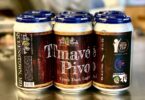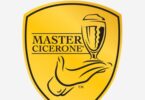A businessman taking the leap.
Scott Ades has a very impressive resume that ranges from investment banker to overseeing human resources management software and services for corporate and brokerage businesses to being COO of a national fine wine and spirits distributor in the US. Scott had it all, both on his resume and in life, as he was “really happy” where he had ended up professionally and had no desire to leave. But sometimes, when one is comfortable, he doesn’t know what he misses out on until much later in life when it is too late.
A very unconventional small wine and spirits importer would end up taking Scott on another path that, in some ways, was much more challenging yet, in other ways, immensely more rewarding.
Dalla Terra Winery Direct
The wine importer, Dalla Terra Winery Direct, specializes in small Italian wine producers and much of their portfolio includes esoteric wines that are well-respected by top sommeliers around the country.
View of Colosseum in Rome, Italy.
A traditional importer buys the wines from the wineries and then sells them to a distributor that can make placements in restaurants and retail stores across the US. In this situation, the traditional importer will markup the wines’ wholesale price as high as possible to make the most money. In many cases, when a wine producer from another country sees the final retail price at a store or restaurant in the US, which can be a shock when comparing what the importer bought it for as opposed to the final price, the producer doesn’t know how much margin the importer added versus how much margin the distributor and then retail store added. It can deeply bother a small producer, who often is in the dark regarding their wines’ pricing, as they are often persuaded to sell their wines to the importer for a lot less, as they are desperate to get into the US market. In contrast, the importer could have added significantly more to their wines’ price.
Dalla Terra is more of a “national agent” in the way they operate, according to Scott. They represent all of the wineries in the United States, like any other importer, except their business model is based on what he feels to be a much more symbiotic relationship.
Vineyards in the Langhe, Piedmont, Northern Italy.
The wineries sell directly to the distributors so they ultimately decide the price. Of course, Dalla Terra represents them in these agreements with these distribution companies as Dalla Terra not only has long-standing relationships with these companies, they can also advise the wine producers on reasonable pricing that doesn’t price the producers out of the market but allows them to make as much money as possible. Dalla Terra also works with the producers to promote their wines in the marketplace yet it is always the wine producers’ money paying for the promotion.
If the wine producers sell more wines, Dalla Terra makes more as they work on commission. And so, it is always in the best interest of Dalla Terra to ensure that the producers make the most money while also selling out their wines. Scott has worked the numbers and says that if a traditional importer brought in the wines in the Dalla Terra portfolio, the final prices for the wines in restaurants and retailers would be around 20% higher, and so, consumers are benefiting as well.
How did Scott, a man with top-level positions at big companies, end up at a small business?
Brian Larky
Dalla Terra was started in 1990 by Brian Larky, a man who is rooted in working in the wine cellars of Napa Valley wineries, as he fell hopelessly in love with Italy when he worked at a winery in the Italian wine region of Lombardy. For him, it was all about getting to know the people and living the Italian lifestyle of spending time with good people, drinking wonderful wine and eating delicious food. He wanted to spend a significant amount of time in Italy to be part of the Italian community so he started a wine import business that was entirely transparent for the wine producers. Also, Brian had ensured that there is no in-fighting between his wineries since they carry only one producer representing a specific wine-producing area of Italy.
Through time, Dalla Terra made a strong name with distributors and wine buyers looking for something different and unique in the Italian wine world. Scott Ades was Chief Operating Officer for a large distributor with a sizeable premium Italian wine portfolio that distributed wines from Dalla Terra and he knew Brian and the former president of Brian’s company. Once the former president retired, Scott was approached about coming to Dalla Terra to fill that role but he was happy where he was and it never occurred to him to ever leave. Yet he could not help but think there would be a day when he turned 60 and he might regret not taking that leap when he was still young enough to do so. He decided to join Dalla Terra if he could be a co-owner as well as president.
Symbiotic Relationship
Brian Larky and Scott Ades
Although Scott had all of the sales and operations of a large wine and spirits company as part of his duties when he was COO yet during his first year of Dalla Terra, over six years ago, he worked twice as hard than at his previous job. And it is undoubtedly challenging times for small importers and small wine producers as Covid, transportation issues and the whole way people work has been turned on its head. But he wouldn’t change anything as working for Dalla Terra has brought more meaning to his work.
“We talk more about ourselves like a family,” noted Scott, regarding the employees at Dalla Terra and the wineries. Now, when he travels to Italy to visit with his wine producers, it is the best kind of family to visit as everything is above the board and any type of success is mutually beneficial. Scott proudly smiles, “The people we represent care about us, and we care about them.” And his previous journey of knowing the ins and outs of the realities of the fiercely competitive world is an excellent asset to his wine family and he gets to finally transition his career where he is making genuine relationships for life.
Lineup of Dalla Terra Winery Direct wines.
Cleto Chiarli ‘Vecchia Modena Premium’ Lambrusco di Sorbara DOC, Emilia-Romagna, Italy: 100% Lambrusco di Sorbara. Undoubtedly, the Chiarli family is one of the most important producers of red sparkling wine in the world and they have made authentic Lambrusco wines a favorite among Italian wine geeks and lovers alike. This brut range sparkling red wine is seemingly dry on the palate with delicious flavors of pristine red cherries and raspberry sorbet with a stony minerality and gentle bubbles that caress the palate.
2021 Alois Lageder ‘Porer’ Pinot Grigio, Vigneti delle Dolomiti IGT, Alto Adige, Italy: 100% Pinot Grigio. The Lageder family has been involved in wine for over 200 years and they are one of the producers that can be counted on to make premium Pinot Grigio with a sense of place. This bottling called ‘Porer’ is considered a winemaker’s wine as it embraces experimentation with different techniques to produce a complex Pinot Grigio. One part of the grapes was pressed immediately after harvest to keep the fresh flavors and aromas. Another part was kept on the skins for 15 hours and the third part was in contact with stems and skins for about one year, absorbing color, some tannin and other rich flavor components. Complex nose with citrus blossom, candied apples and honey suckles and a touch of Brazil nut on the nose with good weight on the palate balanced by fresh acidity.
2020 Vietti ‘Derthona’ Timorasso, Colli Tortonesi DOC, Piedmont, Italy: 100% Timorasso. The Vietti family has been an essential pillar in the excellent quality that comes out of Piedmont, which was taken to the next level by current-generation winemaker Luca Currado Vietti. Even though they are known for their red wines that include some of the top vineyards in the Barolo and Barbaresco winegrowing areas of Piedmont, they have, in recent years, made an exciting wine from the white native variety Timorasso. Juicy nectarine with hints of saffron and blanched almonds with a saline minerality on the long finish.
2020 Tenuta Tascante ‘Ghiaia Nera’ Etna Rosso DOC, Sicily, Italy: 100% Nerello Mascalese. Extreme viticulture as this wine is sourced on one of the most active volcanoes in the world. The ‘Ghiaia Nera’ comes from the young vineyards of Nerello Mascalese and it gives some of the qualities of the old-vine vineyards that can be found in other bottlings of Tenuta Tascante yet it has softer tannins and overall freshness. Lovely nose of lilacs and rose petals with fresh tarragon and raspberry tart with silky tannins and lots of freshness on the palate.
Dalla Terra Winery Direct lineup of wines.
2019 Poliziano, Asinone, Vino Nobile di Montepulciano DOCG, Tuscany, Italy: 95% Sangiovese, 5% Canaiolo and Merlot. From the single vineyard named Asinone, known for its poor soil, which is ideal for moderate vigor to produce high-quality Sangiovese. Dark fruit on the nose, such as black cherry and blackberry, with hints of crushed rose petals and upheaved earth with defined tannins and a lifted structure overall.
2017 Tenuta Scerscé ‘Essenza’ Valtellina Superiore DOCG, Lombardy, Italy: 100% Chiavennasca (Nebbiolo). For those who love the Nebbiolo grape, Valtellina is a must-try wine region; it is grown in tiny vineyards on extremely steep slopes within ancient terraces and is called Chiavennasca. The Tenuta Scerscé estate goes back to the year 804 and vintages in the cellar go back to 1925. This property was saved by an international lawyer, Cristina Scarpellini, whose mission is to keep the old ways as she is part of an association that protects the ancient terraces. Brambly berries and forest floor with hints of violets on the nose, an elegant body and finely etched tannins.
2018 Marchesi di Grésy, Martinenga, Barbaresco DOCG, Piedmont, Italy: 100% Nebbiolo. The Martinenga vineyard is the largest single-owned “monopole” in the Langhe area and it has been owned by the di Grésy family since 1797. A real intensity to the red fruit that is beautifully expressed on the nose and palate with lots of vitality with a long, elegant finish that leaves notes of cherry compote and truffles in one’s head.
2006 Capezzana, Carmignano, Villa di Capezzana, Carmignano DOCG, Tuscany, Italy: 80% Sangiovese and 20% Cabernet Sauvignon. The Carmignano is the smallest DOCG in Tuscany and the Cabernet Sauvignon planted on the Capezzana estate, which is over 1,200 years old, is from the Château Lafite Rothschild vineyard as the Contini Bonacossi family bought the estate from a Rothschild family member back in 1920. This wine was incredibly generous even at this stage in life, with lots of blackcurrant and black cherry fruit with intoxicating aromas of fresh leather and smoldering earth; an absolute star of a wine.
2013 Capezzana, Carmignano Riserva ‘Trefiano’ Villa di Capezzana, Carmignano DOCG, Tuscany, Italy: 80% Sangiovese, 10% Cabernet Sauvignon and 10% Canaiolo. This Riserva is only made in the best vintages and the grapes are sourced from a 12-acre vineyard surrounding the historic Villa di Trefiano in Carmignano DOCG. Beautifully balanced with intriguing notes of freshly fallen autumn leaves intermixed with dark chocolate and baking spices, plenty of juicy fruit on the palate, lifted by a firm structure along the flavorful finish.
2019 Capezzana, Carmignano, Villa di Capezzana, Carmignano DOCG, Tuscany, Italy: 80% Sangiovese and 20% Cabernet Sauvignon. Showing a graceful quality from the first sip with an enchanting purity of dark cherry fruit with a touch of tobacco and freshly grated nutmeg with an elegant texture and a long, expressive finish.








